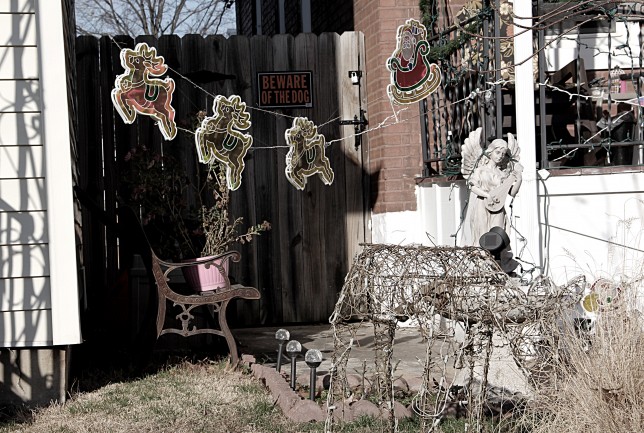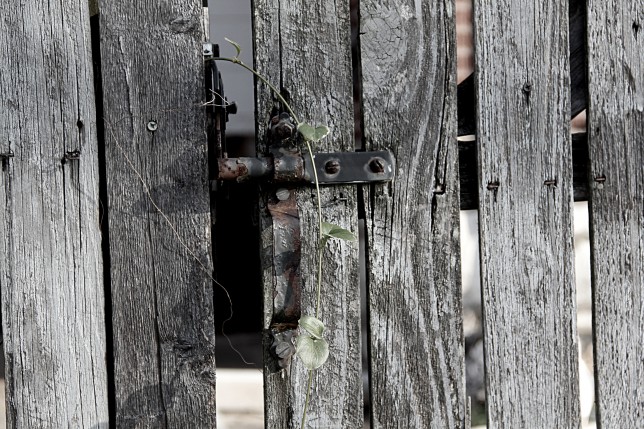It has been clear for all of the campaign season and is now becoming clearer that Donald Trump should not be president. He is temperamentally unsuited to the position, he does not have the working knowledge of how things work in a government, and he is wildly unpredictable. He is also as thin-skinned as they come.
But so what? He has been elected. For better or worse, unless something remarkable happens, he will be president for the next four years.
By remarkable I mean any of several possible legal scenarios.
There is a petition circulating to request the Electors of the Electoral College change their vote. This is possible and, as previously noted, not only perfectly legal but one of the reasons the College was established to begin with. It is also possible Trump will decide this is a bad move for him and resign. It is questionable whether this would leave Pence in place. After the inauguration, it is possible congress could impeach him. There is ample in his background that would seem sufficient.
Addressing just one of these, I could suggest that the Electors do something even more remarkable, and that is to nullify their vote entirely. Give it to no one. This would likely force a new election. We would have to do the whole thing over.
I do not believe we have ever had a nominee winning the Electoral vote with such a gap in the popular vote before, As the ballots continue to be counted, it is clear that among those who actually went to the polls, Hillary Clinton is the winner. It would be ethical and legal for the College, on December 19th, to change their votes to reflect this reality. Will that happen? I rather doubt it. I do not believe there is sufficient moral fiber extant to take that kind of a position and it may well be that most of them, aligned with Party the way they seem to be, want this.
Which means the elephant is loose in the china shop. This is going to hurt and hurt a lot.
So what are our options?
It has been suggested we abolish the Electoral College. It is, however, in the Constitution, so getting rid of it requires a constitutional convention, which means opening the whole thing up to revision. I personally don’t trust that we have on hand the wisdom to do that. We see all the time other countries that continually rewrite their constitutions and it rarely ever comes out well. We might pass a new amendment to nullify it, the way we did with Prohibition, and that would avoid putting the whole thing on the surgeon’s table, but that would also require an enormous consensus across the country, something we’ve been lacking of late. I don’t think that would work, either.
So here’s a thought. There is no reason to have the Electoral vote announced at the same time as we’re doing the popular vote tally. As we are now painfully aware, on that day, the votes just aren’t all in. Expecting this big complicated mechanism to do all this fairly and honestly in one day may be too much. Had we not locked in those ballots on the day and waited for the balance of the vote count, we would not have a fait accompli the undoing of which could cause a violent ruction. Since it is the case that they meet for the final vote on December 19th, we should simply wait till then for any kind of announcement.
There was a time I hated the idea of term limits, but I’m coming around to the notion. The real damage of this election is in the fact that through negligence and apathy we returned a vast number of incumbents who are set on undoing so much that mitigates the reality that we have been on a course of public pillage which has cost us jobs, savings, security for millions of people who simply do not have the resources to hire the kind of legal help to protect themselves. Supposedly, that has been the task of our government. But how can the government do that without some sense of what its constituents want? We do not vote in sufficient numbers, regularly enough, to place representation in Washington that reflects the reality of our lives. For whatever reason, Americans have traditionally disliked politics and whenever an excuse presents refuse to participate, even at the most basic level of exercising the franchise.
With that in mind, two things we could change that might make it easier. First, make election day a national holiday. That would be simple enough. Secondly, do what Bernie Sanders suggests, make registration automatic, a birthright. When you turn 18, you’re registered to vote.
Of course I can see obstacles. Certain parties have always tried to tie the right to vote to property. The resistance to things like Motor Voter registration demonstrates that. But dammit, that would settle it. At the time of your majority, you would also receive a federal ID, good for all manner of thing. If you can’t get to the place to do so, then we should have mobile registration units that will come to you to secure that ID. I think voter ID laws as they stand are there simply to bar people from voting. We saw this in Wisconsin in a pronounced way. So simply make it law that at 18 you are automatically registered to vote and at the same time you receive your federal ID. In fact, it could be done as part of the whole senior high school process, folded in with yearbook photographs. Done. Turning someone with such an ID away from a polling place would then be a violation of federal law.
Another issue is this whole nonsense about third parties. Here’s a reality. Third parties have never gained traction in this country. There are many reasons for this. Firstly, because it was never intended that there be parties as such, but secondly because we do not create coalition governments as are done in many places where having three, four, even five parties is normal and the winning party must create a government from proportional parts of all parties. Here, with the winner-takes-call method we have, third parties do little more than muddy already murky waters.
But a more trenchant reason is that the two parties we do have take in and absorb viable third party concepts and people. One or the other morphs into what becomes effectively a new party. Which is one reason talking about what either party was like half a century ago is absurd. There may be some continuity but rarely consistency.
Given that, what I would suggest right now is for Bernie Sanders, Jill Stein, Gary Johnson, and Barack Obama to form a coalition to essentially invade one or the other party and begin to transform it in accordance with whatever program they devise between themselves. We cannot ignore Stein or Johnson or at least not what they represent, they made substantial showings in this election. But they will never, at this rate, achieve the kind of authority to challenge either major party, certainly not soon enough to do much good. But by forming a nexus of change within one or the other, they could remake one of the two major parties. Rather than let it happen as it does by accident, it should be done consciously and directly. These four represent the chief aspects of what might make a responsive party. Together, they could be amazing.
Finally, given that we are likely stuck with the situation at hand for the next four years, two more ground level suggestions. The first, the people in congress are supposed to represent all of us. Whether you voted for them or not, by law they are still our representatives—our employees, basically. Treat them that way. Don’t leave the conversation because they’re not your guy. Flood their offices with your input. Tell them what you want. All the time. Burn their ears. They must represent you, that’s how it is supposed to work. Act toward them as if you had put them there. You can still work to unseat them and put someone more to your liking in their place, but while they are there make them do their job.
Secondly, since it would seem civics is rarely taught in school anymore, maybe we should start local classes in it to acquaint people with how all this is supposed to work. Bring the kids. It has become obvious that too many Americans don’t understand the first thing about the way the government works—or could work if people did their part, which they can’t do if they don’t know how.
We are possibly about to lose a great deal. We have a government in place that won by a minority of voters. That is not majority rule it is minority veto. It may be that such things must happen before we act. Secession, a Great Depression, the Cold War. If true, it does not reflect well of us. The tools are there but we have to turn the dials.
Lastly, there are many people in this last election who were turned away from the polls. Voter suppression is very real. But many more just opted out. They were discouraged, perhaps, by their choices, but that’s simply not good enough. You play the hand you’re dealt or you end up barred from the game. Stop waiting to be inspired. Inspiration is not reason, it is not logic, it is not a substitute for dealing with reality. It’s not sexy, but when you vote, the fact is you’re hiring an employee to do a job. The only factors that matter are “Is he/she qualified” and “Do they support the things I support?” Everything else is a bonus and that merits reelection. If they fail in their job, your fire them at the next election. But being swept off your feet by bold rhetoric and substanceless campaign slogans and baseless judgments of “personality” is a sure way to be disappointed—even badly betrayed. But significantly, keep that in mind—at the end of the day, the president is an employee. He—or she—works for you. Handing over your conscience because they dazzle you with promises of brilliance not based on ability or sympathy is irresponsible.










